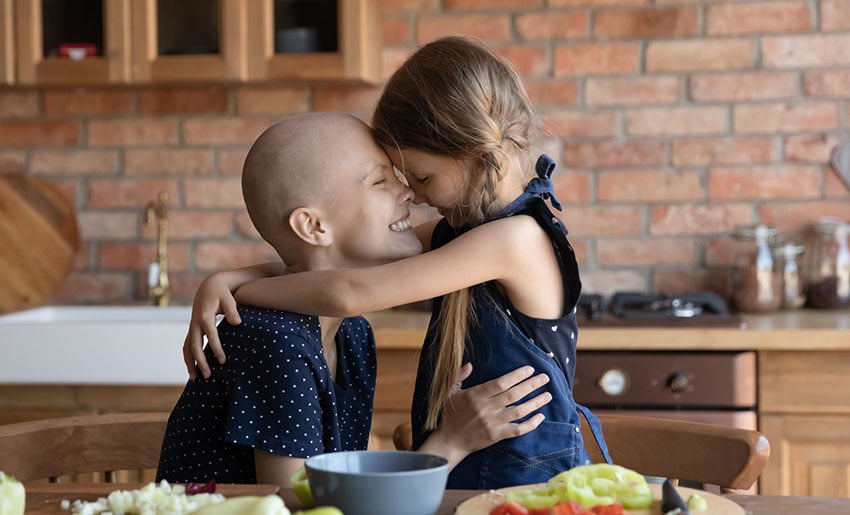Families First: Helping Families to Cope
They may seem deeply engrossed in their computer games or glued to the TV, but kids are always listening. They may not hear that call to wake up for school, clean their room, or come to dinner, but kids are always listening.

As a parent, it is normal to want to protect your children from any distress or worry. You may find that it is harder than you realize to keep the news of your cancer diagnosis from them. Without accurate information, children will often draw their own conclusions about what they are hearing and seeing.
Early communication with your children about your diagnosis and treatment is key, especially because it allows you to be in control of what is communicated and how it is communicated. An open and proactive approach to communication will create a safe space for discussion about what is happening to you and your family.
Most importantly, when telling your children about your diagnosis, be honest. Don’t hesitate to share your distress or sadness about the diagnosis, but at the same time, share your hopefulness about getting better. If the question of death comes up, reassure them that you are seeking treatment for your cancer and doing everything possible to get well.
Additionally, recognize that children of different ages have different capacity to understand what is happening medically so adjust your communication accordingly. Younger children may only need information about changes they see. These include physical changes, such as hair loss, or changes in their routine, like having to ride home from school with a friend because of your treatment schedule. Older children may need more details. Regardless of age, remember to keep it simple and use language that they can understand.
Finally, check in regularly. Don’t be afraid to ask kids what they know about cancer so that you can dispel any myths, such as the fear that your cancer may be contagious. Encourage them to ask questions and express their fears and worries. Set up a weekly time to connect as a family to see how they are doing. Engage others in your support system to be available to them as well, such as close family members, friends, or trusted teachers.
Taking steps to communicate in these ways will help kids to know that they are included and a part of your recovery. Information can be empowering for kids and help reduce their anxiety. It can be empowering for you as well.
Take charge of communication and remember - kids are always listening.
If you would like assistance in finding ways to best communicate the news with your children, contact the Social Work office at 813-745-8407 and ask to speak with a social worker. We have numerous resources to assist patients in communicating about cancer in the family.
This story was originally published in the PARTNERS newsletter. Visit Moffitt.org/PARTNERS for more stories and to learn more.
